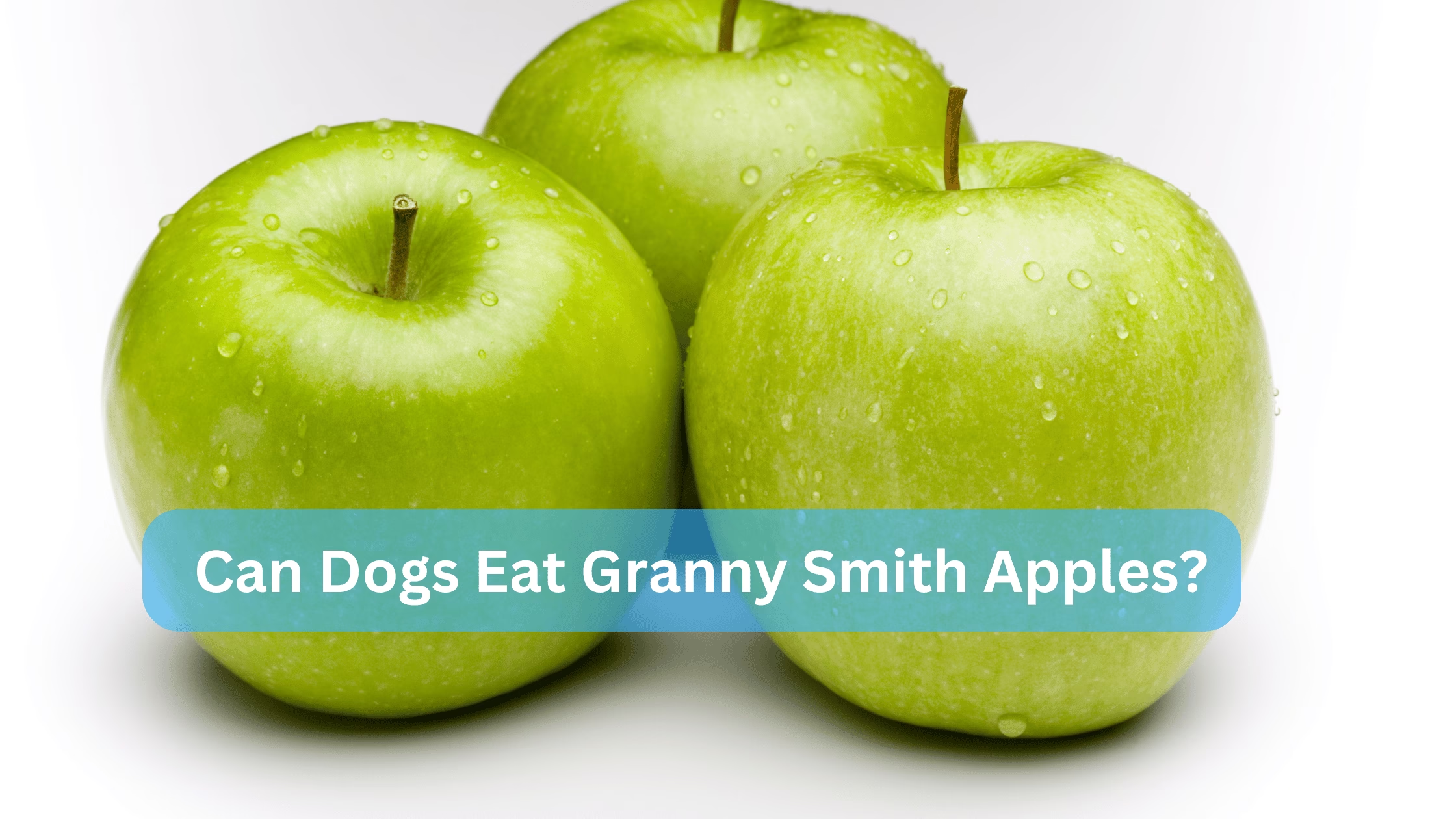Dogs are known for their love of food, often showing interest in what their owners are eating. As responsible pet owners, it is crucial to know which human foods are safe for our canine companions. One common question that arises is whether Can Dogs Eat Granny Smith Apples. This article explores the safety, benefits, and potential risks of feeding Granny Smith apples to dogs, offering a comprehensive guide for dog owners.
Can Dogs Eat Granny Smith Apples?
Granny Smith apples are generally safe for dogs to eat in moderation. However, there are some important considerations to keep in mind:
- Remove Seeds and Core: Apple seeds contain cyanogenic glycosides, which can release cyanide when chewed and ingested. While a few seeds are unlikely to cause harm, it is best to avoid any risk by removing the seeds and core before giving apples to your dog.
- Moderation is Key: Like any treat, apples should be given in moderation. Excessive consumption can lead to digestive issues such as diarrhea or upset stomach due to the high fiber content.
- Monitor for Allergies: Although rare, some dogs may be allergic to apples. Start with a small piece and monitor your dog for any adverse reactions.
Nutritional Benefits of Granny Smith Apples for Dogs
Granny Smith apples offer several nutritional benefits for dogs when given as an occasional treat:
- Rich in Fiber: Apples are a good source of dietary fiber, which can aid in digestion and promote healthy bowel movements.
- Low in Calories: They are low in calories, making them a suitable treat for dogs that need to manage their weight.
- Vitamins and Antioxidants: Apples provide essential vitamins such as Vitamin A and Vitamin C, which support overall health and the immune system. They also contain antioxidants that help combat free radicals.
- Hydration: Apples have high water content, which can help keep your dog hydrated.
How to Serve Granny Smith Apples to Your Dog
To safely serve Granny Smith apples to your dog, follow these steps:
- Wash the Apple: Thoroughly wash the apple to remove any pesticides or chemicals on the skin.
- Remove Seeds and Core: Cut the apple into slices or small cubes, ensuring all seeds and the core are removed.
- Monitor Portion Size: Offer small amounts to start with, particularly if your dog has never had apples before. A few slices or cubes are sufficient as a treat.
Potential Risks and Precautions
While Granny Smith apples can be a healthy treat, there are potential risks and precautions to consider:
- Choking Hazard: Large pieces of apple can pose a choking hazard, especially for small dogs. Always cut apples into manageable sizes.
- High Sugar Content: Although apples have natural sugars, excessive consumption can contribute to weight gain and dental issues. Brush your dog’s teeth regularly to maintain oral health.
- Pesticide Exposure: Non-organic apples can contain pesticide residues. Washing the apple thoroughly or opting for organic apples can reduce this risk.
Alternative Fruits for Dogs
If your dog doesn’t enjoy Granny Smith apples, or if you’re looking for variety, consider these dog-friendly fruits:
- Blueberries: Rich in antioxidants and low in calories.
- Bananas: High in potassium and easy to digest, but should be given in moderation due to high sugar content.
- Watermelon: Hydrating and low in calories; remove seeds and rind before serving.
- Strawberries: Packed with vitamins and antioxidants, but like bananas, should be given in moderation.
Also Read: Is Jackfruit Toxic to Dogs? Can Dogs Eat Jackfruit?
Also Read: Are Crape Myrtles Poisonous to Dogs?
Conclusion
In conclusion, Granny Smith apples can be a safe and nutritious treat for dogs when prepared properly.
By removing the seeds and core, serving in moderation, and monitoring your dog for any adverse reactions, you can offer this fruit as a healthy snack.
Always consult with your veterinarian before introducing new foods into your dog’s diet to ensure they meet your pet’s specific health needs.
Remember, while Granny Smith apples can provide beneficial nutrients, they should complement a balanced diet tailored to your dog’s age, size, and health condition.
By being informed and cautious, you can keep your furry friend happy, healthy, and well-nourished.
Sources:







